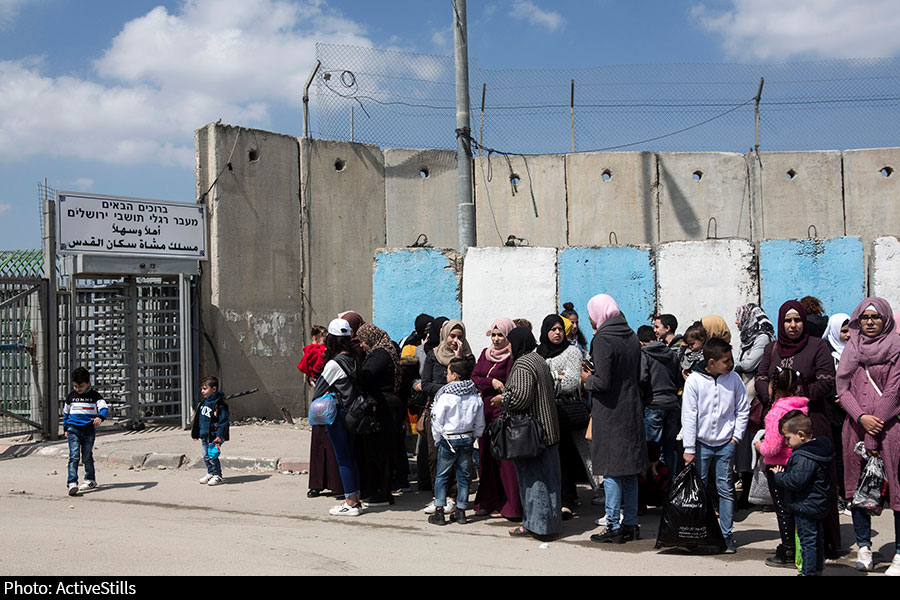
Dear friends,
It isn’t often that an issue at the heart of HaMoked’s work is headline news. But this past week, all eyes in Israel are on the political negotiations around renewal of the Citizenship and Entry into Israel law, the discriminatory “temporary order” that prevents family unification with Palestinians.
For the past two decades HaMoked has fought against this law and assisted thousands of its victims. The law determines that legal status (residency or citizenship) cannot be granted to Palestinians in Israel pursuant to their marriage to citizens or residents of the country. Without official legal status, Palestinian spouses are forced to live in the country with only temporary military permits, which they must renew every year or two. And these temporary permits are only available to spouses above a certain age (25 for women and 35 for men); younger couples have no way to live together in Israel legally.
Officially, the purpose of the law is security-related: to prevent entry into Israel of potential Palestinian assailants. In actual fact, this is one of many policies whose purpose is to maintain the “demographic balance” in Israel – that is, protecting the Jewish majority in the country, at the expense of the basic rights of its Arab citizens and residents.
We won’t go into the details of the changes to the law in the years since it was first passed (if you’d like to dive into the issue, there is no better resource than HaMoked’s timeline on the topic). Our litigation has succeeded in limiting the law’s harm to human rights, but thousands of families still rely on temporary permits in order to continue living together.
As noted, the law doesn’t actually prevent entry into Israel by spouses from the West Bank. In its current form, for spouses above a certain age, all it does is bar them from obtaining legal status in the country, thus denying them access to social rights. Without legal status, these spouses are forced to eternally live in their homes with only temporary permits, in constant fear that the Ministry of Interior will refuse to renew their permits and force them to leave their homes. Today, some 9,200 such families live in Israel and East Jerusalem, forced to contend with this confusing, humiliating and never-ending bureaucracy.
The law also severely harms the rights of children from such families, and HaMoked frequently receives requests for assistance from families whose children remain stateless because they were not able to register them with the Ministry of Interior.
For the past two decades, HaMoked has called for revocation of this discriminatory law, which severely harms the rights of thousands to family life and equality. It’s ironic that political infighting between different rightwing parties is what may bring about the revocation of this harmful law. One way or another, we at HaMoked will gladly celebrate its revocation, or any significant limitation to the damage it causes.
Best,
Attorney Dani Shenhar
HaMoked

Subscribe




